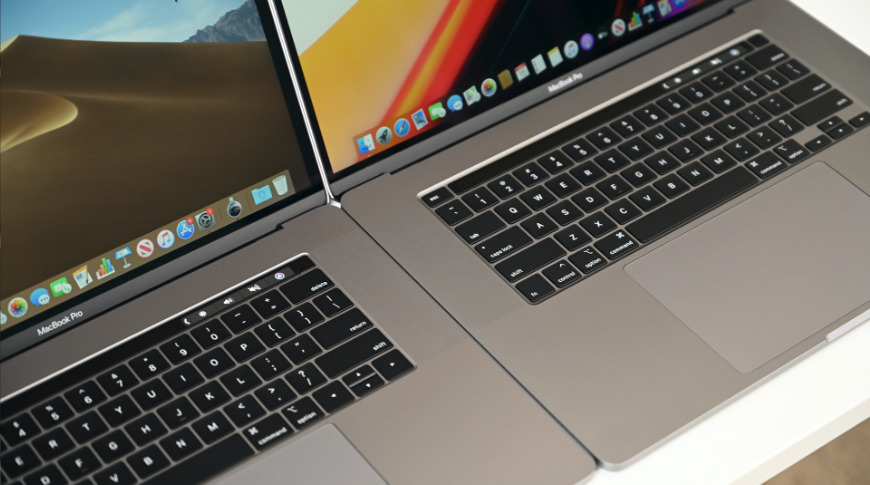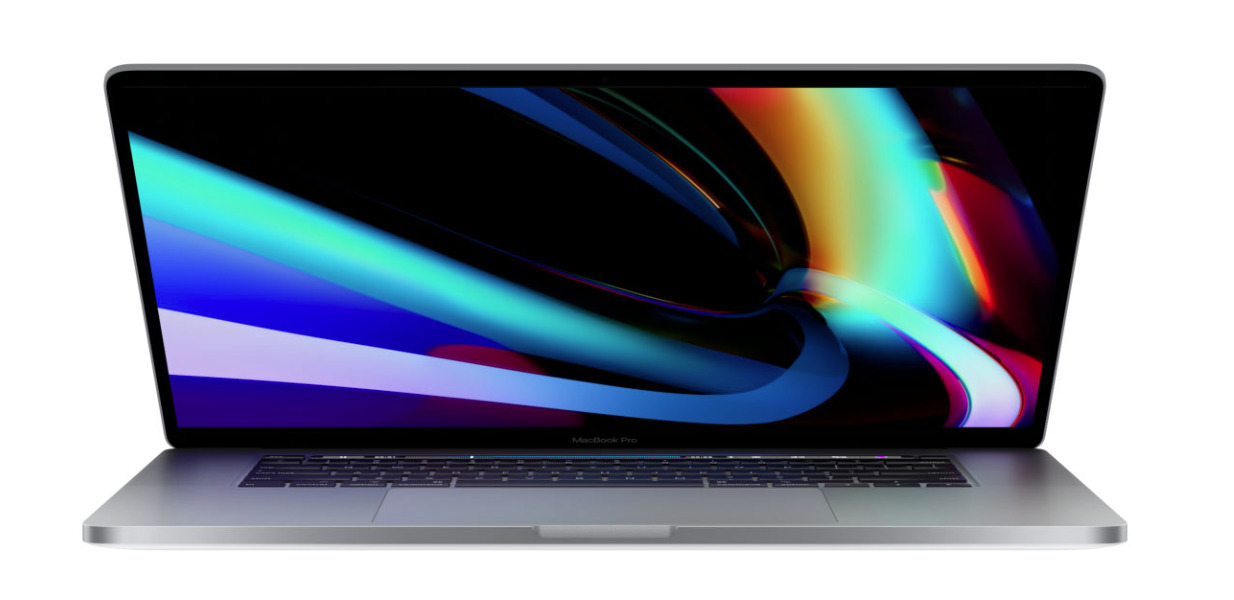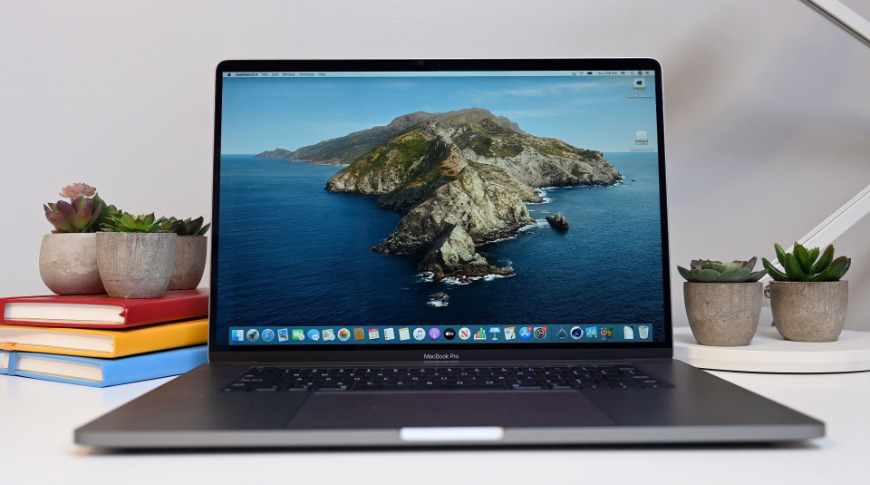While it is highly unlikely that Apple will bring out a 14-inch MacBook Pro anytime soon given Monday's 13-inch MacBook Pro refresh, some signs point to a release later in 2020. Here's why.
Rumors for a 14-inch MacBook Pro pointed to the possibility of Apple including a 14.1-inch Retina display in its refreshed smaller MacBook Pro model, similar to how the 16-inch MacBook Pro replaced the 15-inch version. The screen upgrade rumors were combined with others about the 13-inch MacBook Pro refresh, which was set to be unveiled in the second quarter of 2020.
On Monday, the rumors were largely proven to be right, with Apple revealing a refreshed 13-inch MacBook Pro. Speculation and leaks about it having a new Magic Keyboard, an inverted-T configuration for the arrow keys, and a physical escape key along with the use of tenth-generation Intel processors were confirmed to be true with the launch.
While those specification rumors were found to be correct, only the 14-inch display claims were found to be wanting. Apple retained the same 13-inch display as the previous generation, instead of using new components.
The missing model, as well as the number of reports about the supposed 14-inch display does raise a few questions. Is Apple still going to launch a 14-inch display, and if so, when will it theoretically arrive?
Given the launch of the 13-inch model refresh, it seems extremely unlikely that Apple will want to launch a 14-inch model just two or three months later. Given it waited a year before updating from the 2019 model, it is reasonable to expect Apple to wait for a while before introducing a potential replacement.
However, the wait could be shortened if Apple has a good enough reason to release a model with a new display size, a new display technology, or a wholly different hardware architecture.
Mini LED
One possible reason could be a change in display technology, from a backlit LCD to something new. Based on the musings of TF Securities analyst Ming-Chi Kuo, that could take the form of Mini LED.
Mini LED is, as the name suggests, a very small LED component. While current LEDs are used for backlighting systems, they typically rely on a small number of LEDs lighting up a larger area. Mini LED changes that by allowing more of them to be installed throughout the backlight layer.
The result is a backlight that is extremely evenly lit, and one that could offer higher levels of contrast by dimming darker areas of the screen. This could allow for extremely high contrast displays to be created, while still relying on the relatively mature and cost-effective LCD technology rather than switching to the expensive OLED.
Mini LED can also be used on flexible substrate, allowing it to be employed in wearable or flexible devices, though this doesn't really benefit a rigid MacBook Pro display.
In September 2019, Kuo proposed Apple would produce high-end models of the iPad Pro and MacBook Pro that use Mini LED screens produced by LG Display. Kuo speculated the models would launch in late 2020 or early 2021.
A follow-up note to investors in March 2020 reiterated the potential use of Mini LED sometime in 2020, and said that three iPad models using the technology were coming, along with a refreshed 27-inch iMac Pro, an updated 16-inch MacBook Pro, and a 14.1-inch Mini LED MacBook Pro replacing the 13-inch model.
Outside a fourth-quarter release for the iMac Pro, Kuo doesn't offer launch timings for the other products. The 13-inch MacBook Pro refresh would certainly push the launch of a replacement model as late as possible in the year.
ARM Mac
While changing the display technology could be one good reason to change the screen size, it is also entirely justifiable for Apple to make alterations to a design at the same time as introducing other major updates. If you're changing one fundamental element, it's an ideal opportunity to take over creative risks, such as using a different size of display.
Arguably one of the biggest changes to the Mac platform rumored to be on the way is the potential introduction of an ARM-based Mac. By transitioning from Intel processors to an ARM-based platform, this would be a major fundamental shift for the company, and would necessitate the introduction of products supporting that vision.
In short, Apple would have to start creating and selling ARM-based Macs and MacBooks. Given the relatively small size and highly portable nature, it makes sense for Apple to bring out a MacBook Pro equipped with an ARM-based chip, to encourage developers to migrate across.
It's also feasible for Apple to go for a MacBook Pro given its production lines, as it would in effect be relatively similar to the construction of an iPad in terms of chipset usage.
Some rumors have pointed to the first ARM Mac shipping in the fall of 2020, some in 2021, while Kuo has repeatedly suggested a spring 2021 launch for the product.
Late 2020 for a 14-inch MacBook Pro is plausible
Based on the rumors surrounding Mini LED and an ARM-based Mac, it seems Apple has a few good reasons to introduce a MacBook Pro with a 14-inch display at some point. As the rumors also point to potential product launches for the end of 2020, this arguably puts enough distance between a 14-inch MacBook's release and the May 13-inch MacBook launch.
In the case of it running ARM, it could easily be reasoned that Apple could offer that model with the 14-inch screen while keeping the 13-inch version on sale and running on Intel processors. The two different models could coexist at the same time with similar-sized displays, as it is justifiable by the changes to the Mac platform itself.
This, of course, is only an educated guess based on existing speculation and predictions. As Apple is in control of developing its own products, it also controls schedules. Apple could very easily push a release further down the line to suit any of its needs, especially for ground-breaking items like an ARM Mac.
 Malcolm Owen
Malcolm Owen









-m.jpg)






 Christine McKee
Christine McKee

 Marko Zivkovic
Marko Zivkovic

 Andrew Orr
Andrew Orr
 Andrew O'Hara
Andrew O'Hara
 William Gallagher
William Gallagher




-m.jpg)



16 Comments
...has this historically happened after the back to school investments have been made by customers as well as limiting Apple efforts to support for (and to force buyers on to) the next macOS release...?
I find it highly unlikely they would release a new product mere months later (same with the iPad Pro). First, has anyone noticed the 25 million or more people out of work? Probably not a good time to launch new products and an even worse time to launch multiple releases of the same product in the same year. Second, the supply chain must be close to breaking at this point. Third, shipping out of Asia is severely constrained. Fourth, back to first... people don't have jobs and money for this. Finally, it would piss off customers and make them wary of buying Apple products when they launch. I still remember how mad I was when Apple launched the iPad 4 a few months after the 3. Not impossible, but highly unlikely.
If a MBP14 arrives, I would suspect it will be intel (waaay outside chance AMD) designed for power users and if I had a wish a discrete GPU. An ARM Mac I think would go smaller to be easier for the SOC to drive, maybe 12 inch.
Actually why not just use both current iPad Pro screens, @11 and 12.9 inches?